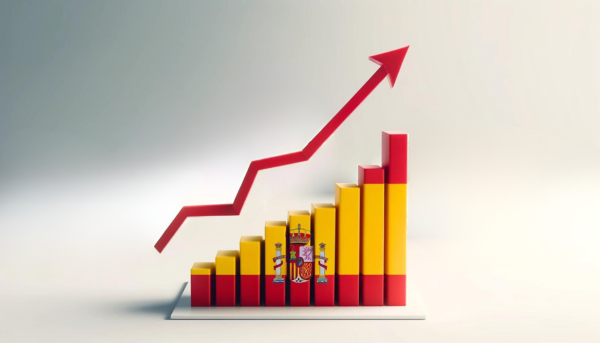Opinion: What Rishi’s rise means for UK M&A
It feels like it was only yesterday when we were weighing up the prospects of PM Liz Truss… That’s because it (all but) was.
Following her walkout after a record-breakingly brief 44 days in office and the quickfire crowning of Rishi Sunak by the Conversative Party, it’s time for us to look ahead to a more stable political and economic era. That’s the hope, anyway.
Three PMs in two months make predictions near impossible. But what does Sunak’s past tell us about the future? Can he restore confidence in the UK? What will he do for UK M&A?
Remarkably Conservative
Sunak is many firsts. He’s the UK’s first non-white PM. The first of Indian descent. The first Hindu. The youngest for two centuries. His rise is remarkable and, when we look back on the events of these chaotic times, his ascent might be considered the most extraordinary.
Sunak's parents came to the UK from Africa in the 1960s and are of Indian origin. His rise is a British success story but Sunak isn’t anti-establishment. In fact, he’s as Conservative as they come. Winchester College (£52k a year if your kids fancy it), Oxford (like our last 5 PMs), Stanford, Goldman Sachs before founding a hedge fund. His choice to become an MP in 2015 was the first sign he wanted more than money from his career. He became Chancellor in 2019, from where he fought COVID (and partied?) alongside Boris Johnson.
When the chaos of Johnson’s reign ended, Sunak lost to Truss in the fight to replace him, voted out by Conservative members, who, as history shows, bet on the wrong horse. In that race, Sunak stood against all that Truss tried (and failed) to deliver. This gives him a unique power now, and whilst he inherits a country in economic peril, he is uniquely qualified to fix it.
We want our experts back
For investors, Sunak’s most important trait is the fact he is the most financially proficient leader we’ve had in decades. Despite his youth, he has deep investment experience, vastly more than Truss, Johnson, May and Cameron. It’s these skills that should give investors confidence that he’s an individual who can plot a safe path through these turbulent times.
This week, The Spectator magazine made this point, saying:
“Gordon Brown was regarded as a details man because he read academic papers. Sunak had a Bloomberg terminal on his desk to follow the metrics from which such papers are drawn. Treasury officials make the same joke about him: no matter how detailed the briefing, he’s more on top of the issue than they are.”
For too long, we’ve lived in a political age when being ‘across the brief’ or an expert was a negative. Johnson and Truss revelled in their assumed ability to ride roughshod over the fine print in order to quickly “deliver” and “get things done”. Of course, this approach backfires when the things you deliver and get done blow up your country’s economy.
Sunak is a man of detail. He is all Johnson is not. He’s also a graduate of the collaborative world of financial services, an approach that contrasts with the siloed Truss, who repeated ad finitum that she was a woman not for turning. It sounds perverse that a PM might not be interested in detail or collaboration, but we’ve lived in extraordinary times, led by supremely unqualified individuals. It’s a relief to have a smart, conservative (small C) leader in charge.
Short term hawkery, long term growth
Above all, UK investors should feel relieved. Gilts have stabilised, stocks and GBP rose as Sunak put down his roots as leader. It won’t be plain sailing. Sunak believes the UK faces a ”profound economic crisis”, and he’s made it clear since being Chancellor, and throughout the summer’s leadership contest, that he aims to rebalance the UK’s public finances.
The UK’s biggest problem lies in its current account deficit, which sits at the widest its been since 1955, flung out of whack by declining exports, falling services (thanks, Brexit), energy insecurity, COVID, and the chaos inflicted by Truss. A deficit hawk, Sunak warned us that Truss’s unfunded tax cuts plus soaring inflation equalled a fairy tale. Of course, he was right.
This week, Sunak said, “Mistakes were made. I have been elected as leader of my party to fix them.” Stand by for tax rises and spending cuts. Growth will slow but chaos should be avoided which, given where we were a month ago, is a positive outcome.
A smart economist… but a great politician?
Investors want confidence and Sunak’s knowledge and experience of markets is one reason why M&A participants should breathe a little easier now he’s in No10. There’s someone in power who respects how global finance works, grasps the consequences of what it means when economies fall out of kilter, and doesn’t believe the UK can make up its own rules.
With the world sailing into headwinds, with no confidence in its future, the UK looked like a basket case for international investors. Further, if rates rose to where they were forecast post-Kwarteng’s mini budget, the chance of PE/M&A financiers raising at serviceable rates looked slim to non-existent. The outlook remains uncertain, but forecasts for BoE rates have receded, giving bankers a shot at freeing up liquidity in the short to medium term.
Primarily, it’s reassuring that in these unprecedented economic times, we’ve a PM who has the financial nous to provide reassurance to market participants, be they finance ministers or corporate development directors. With his fiscally-attuned mind weighing up the challenges, we can plan for a winter that, whilst cold, might not be as intolerable as feared.
Questions remain around whether Sunak can corral the Conservatives into a party of, if not harmony, serviceable compliance. He will need collaboration if he is to deliver the tougher elements of his fiscal hawkery, slowly rebalancing the books and restoring confidence in the UK. There’s little doubt he’s an A* in finance and economics, and M&A professionals should be pleased about that. We’re about to find out what grade he gets in politics.

.svg)

.svg)

.svg)

.svg)





